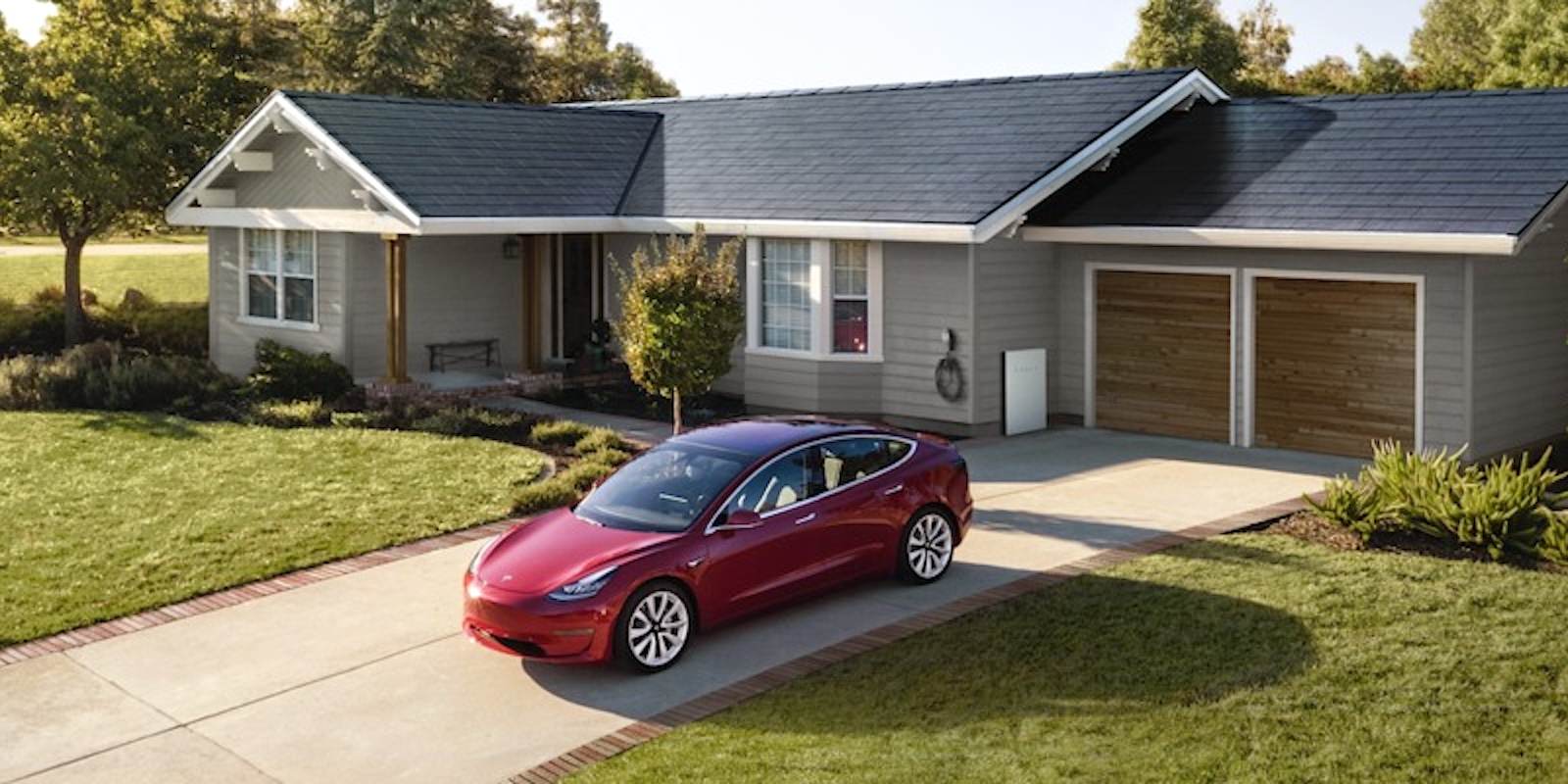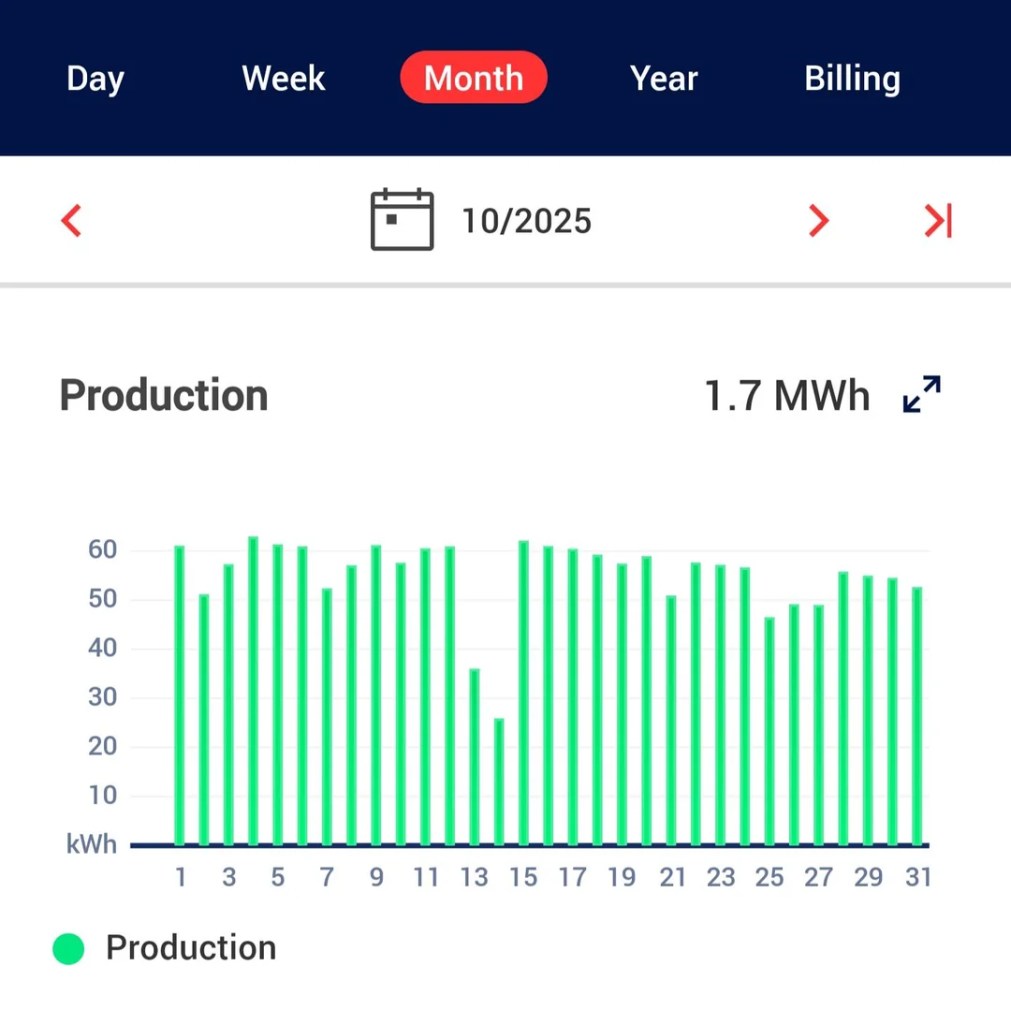
Are you wondering what kind of results you’d get if you added a home solar system to your roof? Homeowners are sharing their results online — and the real-world data might surprise you!
In a recent post to r/Solar, a Reddit user going by DontBuyBitcoin shared a screenshot indicating that their newly-installed ~11.5 kW system produced over 1,700 kWh of electricity in October. “Pretty surprised by the production of the system I got,” writes DontBuyBitcoin. “11.48KW. I cant wait to see what JUNE-AUGUST [2026] going to look like 😍 I wish SolarEdge will make their app better looking with more functionality”
Home solar energy chart

Other Redditors were quick to share in the enthusiasm. “Congratulations!!! Great numbers,” wrote LegalNet4337. “We got 1.6 MWh with a 14.45 kW system. East and West facing panels in SoCal.”
That 1,700 kWh is nothing to sneeze at. Based on the current national average electricity price of about $0.17/kWh (in AUG2025), DontBuyBitcoin’s admittedly large-ish system translates to ~$290 of potential savings. In a higher rate state like Illinois, with a projected 2026 kWh rate that’s closer to $0.18/kWh, that’s ~$306/mo.
We expect retail electricity prices to residential customers will average 17 cents per kilowatthour (kWh) nationwide in 2025, a 4% increase over 2024, and then rise to approximately 18 cents/kWh in 2026. This rise continues a trend in which residential electricity prices have increased at an average annual rate of 5% each year since the COVID-19 pandemic. The increase in retail electricity prices this year comes as the cost of natural gas to the electric power sector was up more than 40% in 1H25 compared with a year earlier, with similar year-over-year increases forecast for the remainder of 2025. The average cost of natural gas for power generation in our forecast increases another 17% in 2026.
Those are big numbers, but 11-15 kW rooftop solar systems are big. Significantly bigger, in fact, than the US average, ~6.6 kW in 2024 – but you don’t have to have a big system in order to post big numbers. Superior weather conditions and perfect PV panel placement can also get the job done, as another Redditor found.
“The last 2 days we have had perfect weather here in South Florida and I have been able to get over 30 kWh from a 5 kW system with a 3.8 kW inverter. This is the highest I have seen since getting PTO in September,” wrote Redditor dlewis23, who shared another SolarEdge graph. “I am super happy with seeing over 30 kWh in a single day.”
30 kW/day from home solar

Taken altogether, these real-world snapshots prove that whether it’s a modest 5 kW array or a beefy 10+ kW setup, homeowners out in the real world are seeing meaningful, measurable differences from their home solar installations. And, with retail electricity prices projected to keep on rising through the decade, every kilowatt counts.
Electrek’s Take

When we ran our “Why did you choose to go solar?” survey back in September, only 32.6% of respondents chose, “Lowering my monthly utility bills” as their primary motivation to go solar. That result proved, in my mind, that Electrek readers are just better people than most, and seem to be willing to spend a little more to do something positive for their environment and their community.
That said, wasn’t it no less a thinker than Albert Einstein who said, “Compound interest is the most powerful force in the universe” (Google it.)? And, with a 5% rate hike compounding every year from now until the AI and data center bubbles burst, the impact energy rates may have on all our pocketbooks may be enough to put “Lowering my monthly utility bills” back on top.
If and when that happens: be smart, get several quotes, and understand the difference between buying and leasing your PV system (especially if you plan on selling your home in the foreseeable future).
SOURCES: Reddit, EIA; featured image via Tesla.

If you’re considering going solar, it’s always a good idea to get quotes from a few installers. To make sure you find a trusted, reliable solar installer near you that offers competitive pricing, check out EnergySage, a free service that makes it easy for you to go solar. It has hundreds of pre-vetted solar installers competing for your business, ensuring you get high-quality solutions and save 20-30% compared to going it alone. Plus, it’s free to use, and you won’t get sales calls until you select an installer and share your phone number with them.
Your personalized solar quotes are easy to compare online and you’ll get access to unbiased Energy Advisors to help you every step of the way. Get started here.
FTC: We use income earning auto affiliate links. More.








